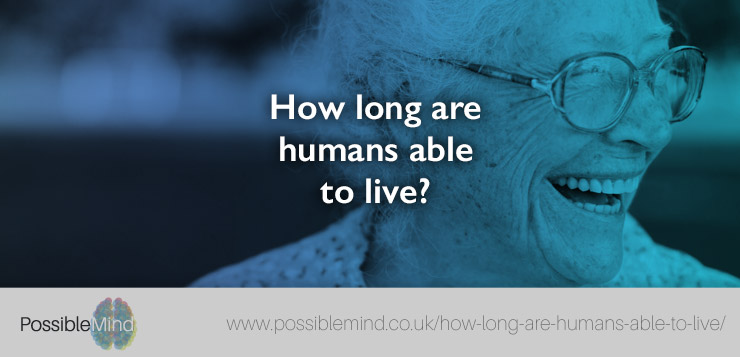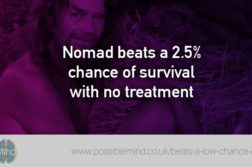Spoiler: it might be much longer than you think.
Living forever was once the remit of science fiction movies and a quest for the super rich. But research shows that we might be able to live for much longer than we think.
When you think about getting old, it’s likely you’re imagining being in your 80s or perhaps even your 90s. Until now, the idea of living well past 100 (the oldest human on record died at 122) has seemed beyond the limits of biology and medical science.
But what if 122 is just the start and our potential longevity could stretch to 150 years or more? And, more to the point, do we really even want to live that long?
How long can humans realistically live for?
Living until 100 or beyond, while rare, is nothing new. We’ve long been aware of pockets of the world whose inhabitants seem to live longer than average lives – Japan and Sicily have more than their fair share of centenarians – and discovering radical ways to promote longevity seems to be the playtime of the super-rich.
Now, scientists are saying there’s no known limit to how long humans can live. But crucially, this doesn’t mean there is no limit. Confused? Allow us to explain.
HUMAN LIFESPAN MIGHT HAVE NO NATURAL LIMIT
There’s an important distinction to be made here between average life expectancy and the maximum human lifespan.
“Average life expectancy (the number of years a person can expect to live) is relatively easy to calculate,” explains Professor Richard Faragher in an article for The Conversation, adding that “maximum life span estimates (the greatest age a human could possibly reach) are much harder to make. Previous studies have placed this limit close to 140 years of age. But a more recent study proposes that the limit to human life span is closer to 150.”
Researchers are divided on this question, with some standing by their conclusions that humans all lose resilience (the ability to recover from illness and trauma) between the ages of 120 and 150. But there is an important caveat: medical science.
“These calculations predicted that for everyone – regardless of their health or genetics – resilience failed completely at 150, giving a theoretical limit to human life span,” says Professor Faragher.
“But estimates of this type assume that nothing new will be done to a population, such as, no new medical treatments will be found for common diseases. This is a major flaw, since significant progress occurs over a lifetime and this benefits some people more than others.”
What causes the human body to age and decay?
Essentially, our bodies start to fail as we age. The speed and age at which this happens will depend on a variety of factors, including genetics and lifestyle choices. Human life expectancy is increasing all the time, and advances in medicine, knowledge and understanding are constantly progressing. So, what causes our bodies to fail as we age?
CELL HEALTH
Let’s be clear – this is an incredibly complicated area of research. Put simply, as we age, the cells that make up our bodies start to die or mutate, a process known as ‘cellular senescence’. Once this happens, rogue cells can start to affect healthy cells and tissues, impacting our immune system and even our DNA.
AGE-RELATED DISEASES
Once our immune system becomes compromised, we are more prone to developing diseases which can curtail our lives significantly – cancers, heart disease and Alzheimer’s, to name just a few.
BIOLOGICAL VERSUS CHRONOLOGICAL AGE
Our biological age tells us how old our bodies are, rather than how long we’ve been alive (our chronological age). Crucially, we are able to influence our biological age by improving lifestyle factors such as diet, exercise and stress levels. And younger, healthier bodies are less likely to decay and experience cell mutation, as well as being better able to fight disease if it should occur.
Average life expectancy is relatively easy to calculate, maximum life span estimates are much harder to make
How can we help ourselves live longer?
There are three pillars to longevity: great genes, a healthy and sustainable diet and exercise regime, and advances in medical technology keeping pace with ever-increasing life expectancy. Even as you read this, average life expectancy is rising, by as much as seven minutes every half an hour.
Do we want to be able to live forever?
As things stand, this is a moot point – but one that, at some point in the future, we may have to start considering. Climate change, socio-economic implications and overpopulation are all concerns that are vital to bear in mind, and studies show that people are unsure whether improved longevity really is a good thing. After all, just because we can do something, doesn’t mean we should.
One thing is clear: there won’t be answers any time soon, as the factors that determine ageing and mortality are complex and interconnected. But in theory, living forever might not be relegated to song lyrics or remote Japanese islands – it really could be the future.
This article was written by Anna Bartter and was first published on stylist.co.uk on 3rd May 2023.
If you like this post you will also enjoy:
- Live long and prosper.
- What Tennis can teach us about overcoming discomfort and illness..
- Mind Power and Belief for Recovery and Healing.
- Unlikely, but still possible.
- The Healing Power of Illness Book Overview.
- The Grace Of Not Knowing.
Further Reading:






